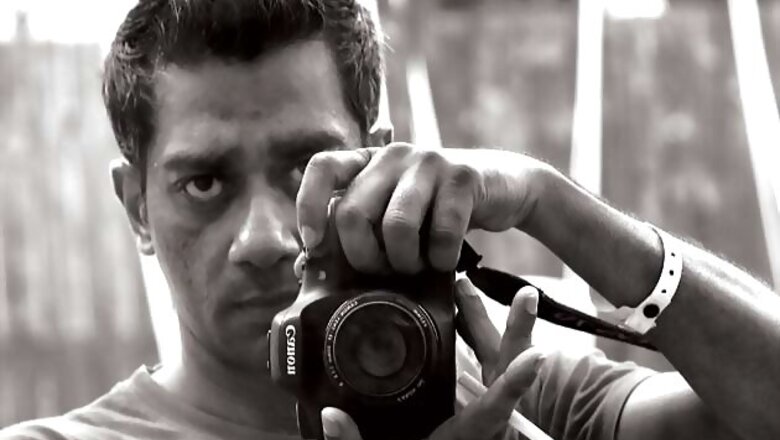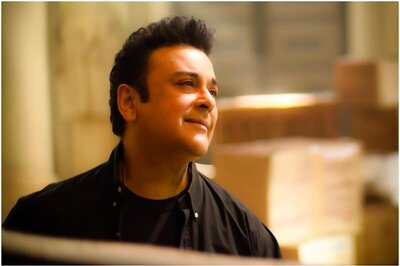
views
New Delhi: DearCinema completes five years this February. A journey full of ups and downs, yet immensely meaningful and fulfilling, driven by passion and conviction. Similar to the journey of the cause that it supports: the good Indian indie cinema. So here, DearCinema brings to you a few voices that define the Indie scene in India today, ruminating over what independent cinema means to them. Straight from the horse's mouth. The series begins with Q a.k.a Qaushiq Mukherjee who shook us out of our ennui with 'Gandu' and is set to do that again with 'Tasher Desh'.
There cannot be a definition for independence, whether it is Individualistic, collective or cinematic. Independence is entirely contextual in a postmodern world. What is critical therefore, is to understand where we stand in terms of history of cinema to be able to begin looking at what constitutes the truest spirit of the indie.
The Indian Indie could be mapped back to the beginning, as it always has been, anywhere in the world. Before the potential of cinematic commerce was discovered, individuals, or artists, driven by passion, made films. Since then, every now and then, independent films raised their defiant heads and challenged norms, sometimes even moulding, or changing them altogether. The last time it happened was in the late sixties and seventies. This particular movement, a continuity of the cinematic and political revolution around the world, had its foundation strongly hinged on ideals. An exalted feeling of following a path of truth, challenging impure tendencies, a sense of black and white, inspired the artists.
The word challenge may be the key to deconstruct indie cinema. Perhaps the only way that a film could claim that it's indeed an independent film is when it challenges, provokes and engages.
But indie as a concept is quite postmodern. Because never before was cinema this accessible. Never was it a pure art form. Cinema was largely an elite game, available only to those with resources or high technical education, kind of like flying a plane. It involved large cameras, large crews, large egos, and had to be larger than life. Unlike any other art form, cinema could not be made alone, unlike painting, writing, dancing, or making music. To get beyond this hurdle, filmmakers strived to make cinema more and more buxom, injecting doses of adrenaline and pumping money into individual shots. They wanted to strike awe and a respectful fear into the hearts of the hapless audience. And they did. Goggle eyes, people around the world watched those helicopters sweeping down and those bridges exploding. They still do.
Independence in cinema, or in life in general, is linked to money. And this is why now is a good time to be a pedestrian filmmaker. Now, it is possible to be an Indie, simply because it is cheap. We all know of the digital explosion, and the rise of consumer/amateur cinema. With the correct amount of information and research, anyone could, hypothetically, shoot a film. Finally, cinema was free. And now emerged the true question. What film do you make?
India has suddenly realized that there could be this other way to make films. In the throes of this revelation, DSLRs are flying off the shelf, and a mother is cautiously putting on her lipstick as the nervous son shifts around the curtains for the correct light on the bed, his DSLR hanging in his left hand nervously, like a cigarette on Godard's lips. What could possibly come out of this experiment? We can only wait and watch. Meanwhile, let us keep on experimenting the ways to go about in the quagmire of digital real estate, trying to hunt for those details that will make the true Indie get made.
Indie cinema is not only about telling a story. That's not the job of cinema, though it has been relegated to that job by the ever-turning wheels of industry. It is an experiential form, working with more than one dimension. Stories are the basis of cinema, but the way one tells the story makes it cinema. Form, therefore, plays a major character in this set up. Technique is crucial. It's the thing that sets it free. To free oneself from the burdens of classic moviemaking, careful scrutiny and knowledge of the technology is unavoidable. And since this technology is transient, unlike analog, one has to be on that ball. I am not insinuating that the genius indie filmmaker is a geek, but usually it turns out that way.
About money, there's really nothing to say. Subversion is the only mantra for a pedestrian filmmaker. And the greatest joy of all is in subverting economy. Frequently I feel that knowing how much you can spend and then crafting the exercise of production is the best way. You also need money to bring a film out, and if one is looking at the entire process as subversive, the distribution should also be looked at in the same way. Progressive distribution and new media are the obvious answers, but the first thing is to prepare the indie crew to deliver faithfully. Faith is the most important ingredient of the mix. Faith on challenging, on deconstructing, and on cinema.
Time is non linear. So is indie cinema.




















Comments
0 comment